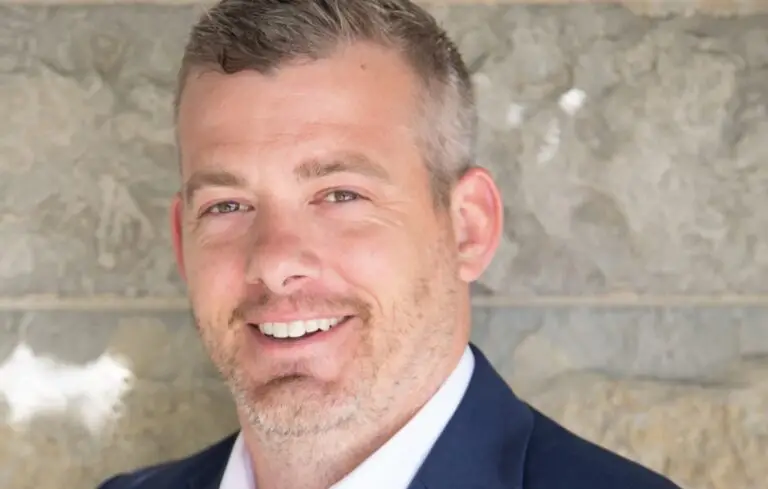Stanley Black & Decker is introducing a new line of cordless power tools for construction workers under its DeWalt brand, into a market where electrification is proceeding much more smoothly than in other areas of the economy — such as electric vehicles.
The new Powershift line of six tools, meant at first for construction work, eliminates the cords that hamstring the use of previous electrically powered tools and are promoted as not only quieter but also more durable and easier to operate than gasoline-powered competitors.
As president of the Power Tools Group for New Britain, Connecticut-based Stanley Black & Decker — whose iconic tool brands also include Craftsman and Black & Decker — Frank Mannarino is in charge of making sure the new Powershift tools are built, distributed and marketed well, with the aim of helping DeWalt take market share at a time of foment in the construction market.
“We’ve seen a trend in total in power tools to cordless, because of the benefits such as less frustration from not having to drag cords around and avoiding tripping hazards on the job site,” Mannarino, who spent much of his 31 years with the company in product development, told Chief Executive. “And users can see the benefits of staying away from gas tools because of the extra maintenance, frustration and even noise associated with them.”
Mannarino shared some general insights for other manufacturers from the process of designing, building and marketing the new Powershift line:
• Design matters. Unlike electric cars, Stanley Black & Decker has been able to design Powershift tools with a built-in way to overcome “range anxiety” that construction workers might feel about relying on a battery that takes 55 minutes to recharge: Each tool comes with two batteries.
“That takes care of it,” Mannarino said. “That’s the feedback we’ve gotten from units in the field.”
Developers also designed Powershift to make them easier to operate than previous DeWalt lines, in large part to help construction companies overcome the fact that their employees typically have less construction experience than ever amid a continuing acute shortage of labor in the field.
“We’ve done everything we can with the design of the products to make it as easy as possible for less-skilled workers to operate these types of products,” Mannarino says. Two examples: the provision of identical control panels on different but related tools, and a “slow start” feature on the Powershift rammer that allows users to get used to the action before having to control the tool at full speed.
“That helps develop their confidence as they’re starting to get used to these products,” Mannarino explains. “A lot of users haven’t used this type of equipment before.”
• Regulation is getting more important. It’s not the noises from pickleball courts that get urban denizens up in arms: More cities also are clamping down on allowable decibel levels from construction tools and landscaping equipment.
“Electric tools really bring the overall noise on a job site down,” Mannarino says. “They also make it an easier place to work and communicate when it comes to the potential chaos of a job site.”
There also are more regulations around sustainability concerns, which even impact whether gas- or electric-powered tools are used on job sites. California, of course, leads the way in a new regulatory stance, influencing many other locales. More than half of construction professionals said they’ve passed on a bid due to their inability to commit to sustainability regulations, or have lost a bid due to such challenges, according to a new DeWalt survey.
• There are bright spots in construction. The well-documented, post-Covid overhang in commercial office space has become a real sore spot for the U.S. economy and somewhat of a drag on the construction industry. “What’s happening in commercial office buildings is mainly retrofits,” Mannarino said. “We’ve seen more remodeling take place, but I’m not aware of a lot of new construction taking place.”
What is going up is one data center after another, a market where new construction has been hot and will just get hotter with the explosion of data-rich AI applications. Power-plant work is strong as well, he said, making many customers “very bullish on 2024, and even 2025 and 2026 as long as projects continue to progress.”
• Local manufacturing trumps. Amid a shift by many U.S.-based manufacturers to more sourcing in America, Stanley Black & Decker makes most of its power tools for DeWalt and other brands, for North American sales, in Mexico and South America. And the company manufactures most products for other big global markets — including in China, India and Europe — in those regions.
“We’ve balanced things out in the last few years, but we continue to build and manufacture in the right regions to feed [the markets] in those regions,”
Mannarino said. “As we grow, we’ll typically add capacity appropriate to the region.”
So local-market manufacturing makes sense for a number of reasons for the company. But does standing pat about the possibility of doing more manufacturing in the United States give Mannarino pause in a market where many blue-collar end users like to tote tools made in the USA?
“A lot of times we’ll look at our competitive set and understand where our competitors are made and whether that [provenance] gives them an advantage or a disadvantage,” Mannarino said. “But at this point we feel that doesn’t put us at a disadvantage.”








